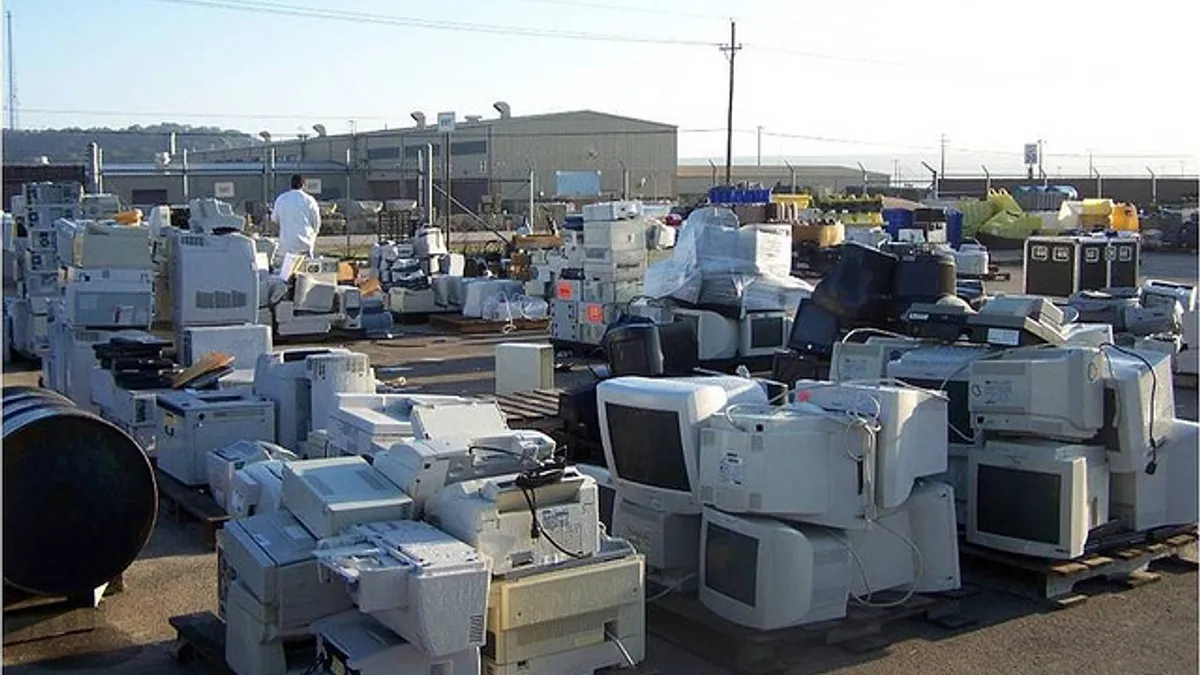Dive Brief:
-
Electronic waste, or e-waste, incites more than an environmental crisis, as most disposed hardware still leaves unsecured traces of data linked back to its former owner, according to a Fortune report. Improper destruction of recycled devices can leave sensitive data vulnerable to whomever picks it up.
-
While the U.S. legally exports electronic waste to Asia and Africa, The Basel Convention agreement does not permit "dumping hazardous waste overseas." Also, countries like China often recycle, repurpose and resell disposed parts as counterfeit.
-
A group within the United Nations predicts 48.2 million metric tons of e-waste will be created in 2017, propelling it ahead of any other type of waste growth.
Dive Insight:
As most companies update their devices every four to five years, tech refresh cycles are unavoidable. Updates, upgrades or simple device malfunctions are seemingly necessary causes for e-waste.
Cloud computing and off-premise hardware are becoming integral to enterprise data storage. But despite data migration, data originally stored on hardware is still present after its removal from the enterprise.
Data can be stored in unknown places of a device making a total wipeout untrustworthy. A report by Blancco Technology Group found that in 200 disposed hard drives, 11% still contained corporate data. ERI, an e-waste recycler, completely demolishes old devices for the sake of its clientele’s cybersecurity. One of the only ways to truly rid a device of its residual data is to destroy the product beyond repair.
E-waste is an issue companies like Google are taking head on. Last year Google announced its "zero waste" initiative for ridding 86% of waste from its 14 data centers. Part of the plan is finding a sustainable mode of recycling as well as improved management and repair for current hardware and servers.
Google’s practices can be adopted by any company. The Repair Association advocates refurbishment and reuse in favor of total replacement. In the last three years, bills have been proposed for manufacturers to embrace "fair repair" policies so that consumers will not automatically take the replacement route.
Regardless of methods of updates and replacements, wiping a device clean and then recycling or reselling it will not protect against those with nefarious motives.













